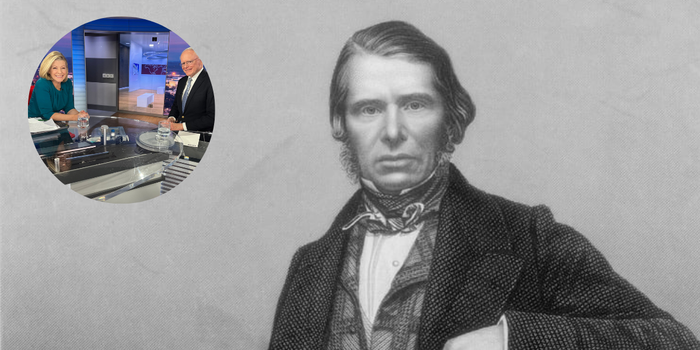The journalist’s four-times great-grandfather was Sir Charles Trevelyan, who is referenced in ‘The Fields of Athenry’.
The family of BBC journalist Laura Trevelyan has apologised for the role its ancestors played in slavery in Granada, with the reporter donating £100,000 in reparations to the country.
However, the move has led to calls for the journalist to also address one of her ancestor’s involvement in the Irish famine.
The Trevelyan family owned six sugar plantations and more than 1,000 slaves in Grenada in the 19th century.
In a statement on Twitter at the weekend, Laura Trevelyan wrote: “The Trevelyan family is apologising to the people of Grenada for the role our ancestors played in enslavement on the island, and engaging in reparations.”
One of the replies to the post was from Irish author Katherine Mezzacappa who said: “Good. Any word on Charles Trevelyan’s catastrophic handling of famine relief in Ireland?”
The Trevelyan family is apologizing to the people of Grenada for the role our ancestors played in enslavement on the island, and engaging in reparations.https://t.co/R7EeBhH2DG
— Laura Trevelyan (@LauraTrevelyan) February 4, 2023
Mezzacappa was referencing Laura’s four-times great-grandfather Sir Charles Trevelyan, 1st baronet, the English colonial administrator who was in charge of famine relief in Ireland in the 1840s and 1850s.
A lack of action from England is cited as a reason for the high death toll of roughly one million during the famine.
Referenced in ‘The Fields of Athenry’, the 1st baronet infamously once suggested that the Irish brought the famine on themselves, stating: “The judgement of God sent the calamity to teach the Irish a lesson.”
Speaking to The Times about her Twitter comment, Mezzacappa said:
‘I am very heartened by Laura Trevelyan’s intention regarding her ancestral involvement in slavery but raised the issue of Charles Trevelyan because of the weird mismatch between the history taught in the UK about Englishmen and what they did elsewhere that similarly needs attention.
“In the case of Ireland, Trevelyan is just one case; Walter Raleigh and of course Oliver Cromwell are others.
“As you probably know, there was no reduction in the export of Irish corn to England in the famine years, referenced even as ‘Trevelyan’s corn’ in The Fields of Athenry.
“But perhaps what is so staggering about Trevelyan’s inaction was his stated belief that Irish sharecroppers had brought the misfortune of the famine on themselves.”
This article originally appeared on Joe.ie.
READ ON: Irish Rail looking to install vending machines on-board their trains


































